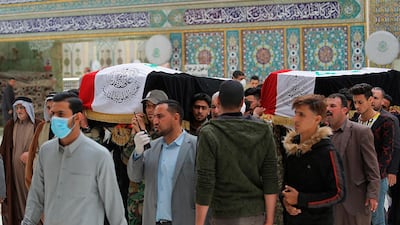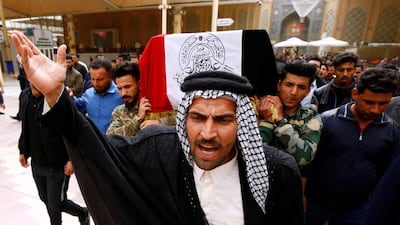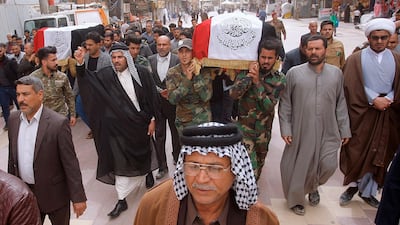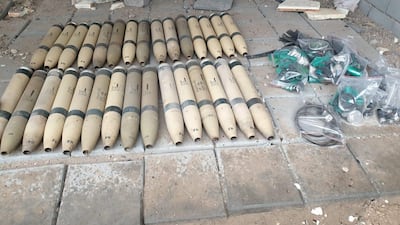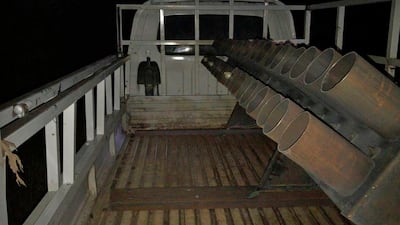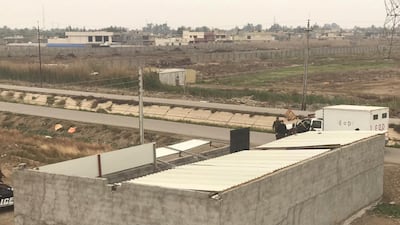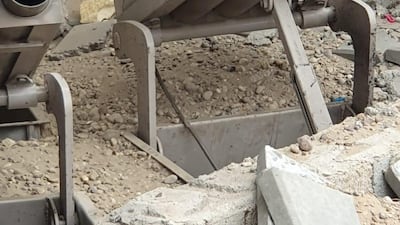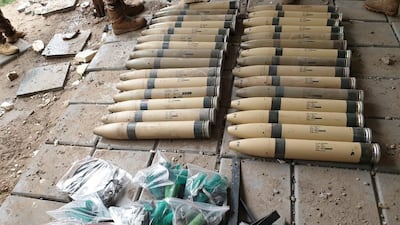UN Secretary General Antonio Guterres called for an immediate de-escalation of violence in Iraq, one day after three US service members were wounded in a daytime attack on a base for coalition troops, north of Baghdad.
Mr Guterres expressed his serious concern about “repeated attacks in Iraq and the region,” his spokesman, Stephane Dujarric, said.
“The Secretary General calls on all sides to take immediate steps towards de-escalating the situation to prevent additional loss of life, injury and destruction,” Mr Dujarric said.
On Saturday, three American soldiers and several Iraqi troops were wounded in the second major rocket attack on bases housing international troops in Iraq.
Iraq’s Joint Operations Command said 33 Katyusha rockets were launched near a section of the Taji base.
It said the military found seven rocket launchers and 24 unused rockets in the nearby Abu Izam area.
The Iraqi military said several Iraqi air defence servicemen were critically wounded.
Two of the three wounded US troops are seriously injured and are being treated at a military hospital in Baghdad, the Pentagon said.
Pentagon spokesman Jonathan Hoffman declined to speculate on US responses. But he quoted Defence Secretary Mark Esper’s warning last week: “You cannot attack and wound American service members and get away with it. We will hold them to account.”
The rocket attacks came less than two days after the US launched retaliatory air strikes at bases in Iraq that the Pentagon linked to the Iran-backed Kataib Hezbollah militia.
It blamed the group for an attack on Taji base on Wednesday that killed two American soldiers and one Briton who was there as part of the international coalition against ISIS.
The retaliatory strikes were meant to deter militia from staging any more attacks.
Iraq protested against the strikes and said members of its security forces were among the dead.
The country is making a complaint to the UN about the incident and also summoned the British and American ambassadors to explain.
The Iraqi military said on Saturday that neither the US nor other foreign forces should use the latest attack as an excuse to take military action without Baghdad’s approval.
It said Iraq should hasten to implement a parliamentary resolution expelling foreign troops.
The Pentagon said Iraqi security forces had made an initial arrest and that the US was assisting with the investigation into the attack.
Long-standing antagonism between Washington and Tehran has mostly played out on Iraqi soil in the past few months.

Iranian-backed paramilitary groups have regularly rocketed and shelled the area around the American embassy in Baghdad and bases in Iraq that host US forces.
Many Iraqis say it is they who suffer most from tension between Washington and Tehran, and some, including caretaker Prime Minister Adel Abdul Mahdi, have called for US troops to withdraw.
Parliament voted to expel foreign troops in January.
Iraq is increasing measures against the spread of the Covid-19 coronavirus at the border with the Kurdish Regional Government in the north.
The country is also facing one of the toughest political crises in years after the resignation of Mr Abdul Mahdi amid mass protests against government corruption, poor services, unemployment and a dire quality of life.
But at Baghdad’s Tahrir Square, the once-bustling centre of the largest anti-government protest movement in Iraq’s modern history, crowds have dwindled and donation boxes have sprouted.
Loudspeakers resound with calls by activists for funds to keep their hard-fought revolution alive.
The six-month movement has faced one setback after another, from the shifting positions of a leading cleric to an apathetic political class.
Adding to that are fears over an outbreak of the coronavirus that Iraq’s decrepit health system has struggled to contain.
Where once Tahrir Square had thousands turn up every day, now only a few hundred protesters hold rallies.
Morale has been dampened among the young Iraqis who first took to the streets on October 1.
Demonstrators have found it difficult to revive the strength of their leaderless movement after scoring early victories.
They included pressuring politicians to pass a critical electoral reform bill and forcing Mr Abdul Mahdi to resign.
Assassinations, abductions and threats against prominent protesters have contributed towards blunting the momentum.
A looming economic crisis linked to the coronavirus pandemic and political dysfunction could eventually inspire Iraqis to go back to the streets.
But for the moment, things have gone quiet in the capital and across the south.
